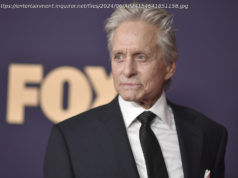The performer’s new Netflix documentary, which details her landmark 2018 Coachella performance, is as much a celebration of African American scholarly history as it is a concert film.
The first words in Homecoming, the new Netflix documentary that expands on Beyoncé’s landmark 2018 Coachella performance, come not from the singer but from the author Toni Morrison. “If you surrender to the air, you can ride it,” the title card reads, a slightly modified quote from Morrison’s 1977 novel, Song of Solomon.
After about 15 minutes of performance footage capped by the Lemonade surprise single “Formation,” the documentary shifts to a glimpse into the process of pulling the Coachella performance together. The first thing that viewers hear after the final echoes of “Formation” is the voice of the late Maya Angelou, played over recordings from some of Beyoncé’s Coachella rehearsals, which spanned eight months:
For Beyoncé, Homecoming presents another opportunity to continue the boundary-shifting semiotic work of the Coachella performance, which itself was built upon the black feminist symbolism of Lemonade and the artistic foundation she’d established for years beforehand. The singer’s headlining 2018 set, which was nicknamed Beychella, was chock full of references to black collegiate traditions—and also included a rendition of the black national anthem, “Lift Every Voice and Sing.” Her performance served a sly dual function: For black audiences, it was a masterly celebration of familiar traditions, including social dance; for white viewers, it was an introduction and an assertion of her deeply rooted prowess. “Instead of me pulling out my flower crown it was more important that I brought our culture,” she says of the festival experience.
It’s fitting, then, that Homecoming is now an extension of this artistic double consciousness (and notably quotes W. E. B. Du Bois, who coined the term). Throughout the documentary, Beyoncé weaves in text and audio snippets from multiple black authors, historians, and public thinkers, most often culling from moments when they spoke directly to black audiences.






